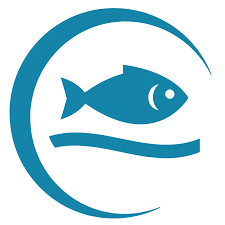Southern Benguela
Type of resources
Available actions
Topics
Keywords
Contact for the resource
Provided by
Years
Formats
Representation types
status
Resolution
-

The indiSeaS project is co-funded by the Intergovernmental Oceanographic Commission (IOC), the European Network of Excellence Euroceans, “'Institut de recherche pour le développement (IRD)” and the European project on Marine Ecosystem Evolution in a Changing Environment (MEECE). It is a multi-institutes collaborative effort. Scientific experts on ecosystems all over world calculate indicators and provide background information. The IndiSeas project aims at "Evaluating the status of marine ecosystems in a changing world”, using a set of different types of indicators to reflect the effects of multiple drivers on the states and trends of marine exploited ecosystems. It focuses on the effects of fishing, use of ecology, biodiversity, as well as climate and socio-economic indicators on world's marine ecosystems health. The objectives are to review IndiSeas datasets, present preliminary results to regional experts, discuss methods to be developed in each of the six task groups, establish work and publication plans for the future. Expertise from over 70 scientists, 49 research institutes and 36 countries.
-

MISSION ATLANTIC assesses the whole Atlantic, and ecosystem components at risk from natural hazards and the consequences of human activities, including individual regional Case Studies, and their interconnectivity. To do this, Mission Atlantic develops IEAs for seven regional Case Studies, in sub-Arctic and Tropical regions of the Atlantic Ocean, ranging from shelf seas to the mid-Atlantic Ridge: 1) Norwegian Sea 2) Celtic Sea 3) Canary Current 4) North Mid Atlantic Ridge 5) South Mid Atlantic Ridge 6) Benguela Current 7) South Brazilian Shelf
-

The ecorisk package will be published under this repository soon. The ecorisk R package is designed to perform and analyse (ecosystem) risk assessments.
-

A marine end-to-end ecosystem model and R package. The aim is to represent the entire interconnected marine ecosystem (from physics and chemistry, to whales and fisheries in continental shelf regions) by exploring 'what if' experiments and explore uncertainty. View the application, the website or the latest publication.
-

Finding suitable ecological state indicators is challenging and cumbersome in stochastic and complex ecological systems. INDperform is an R package for validating the performance of ecological state indicators and assessing the ecological status based on a suite of indicators. The performance evaluation addresses the sensitivity and robustness of indicators.
-

Script for performing the Mission Atlantic RISK Analysis. It has been modified from the ODEMM ('Options for Delivering Ecosystem-Based Marine Management') - approach. For details see https://doi.org/10.3389/fmars.2022.1037878
-

The Copernicus Marine Service (or Copernicus Marine Environment Monitoring Service) is the marine component of the Copernicus Programme of the European Union. It provides free, regular and systematic authoritative information on the state of the Blue (physical), White (sea ice) and Green (biogeochemical) ocean, on a global and regional scale. It is funded by the European Commission (EC) and implemented by Mercator Ocean International. It is designed to serve EU policies and International legal Commitments related to Ocean Governance, to cater for the needs of society at large for global ocean knowledge and to boost the Blue Economy across all maritime sectors by providing free-of-charge state-of-the-art ocean data and information. It provides key inputs that support major EU and international policies and initiatives and can contribute to: combating pollution, marine protection, maritime safety and routing, sustainable use of ocean resources, developing marine energy resources, blue growth, climate monitoring, weather forecasting, and more. It also aims to increase awareness amongst the general public by providing European and global citizens with information about ocean-related issues.
-

An R Package that provides supporting functions for conducting Integrated Ecosystem Assessments (IEA), developed in the framework of Mission Atlantic. The package includes methods for data exploration and assessment of the current ecosystem status. Forked repository in Mission Atlantic. For latest version, check the original repository.
-

A 40-minute tutorial to use OGC webservices offered by the Mission Atlantic GeoNode in your data analysis. The workshop makes use of Python Notebooks and common GIS Software (ArcGIS and QGIS), basic knowledge of Python and/or GIS software is recommended. • Introduction to OGC services • Search through metadata using the OGC Catalogue Service (CSW) • Visualize data using OGC Web Mapping Service (WMS) • Subset and download data using OGC Web Feature and Coverage Services (WFS/WCS) • Use OGC services with QGIS and/or ArcGIS
-

Repository for code and generated data for " Pan-Atlantic 3D distribution model incorporating water column for commercial fish " by Mireia Valle, Eduardo Ramirez-Romero, Leire Ibaibarriaga, Leire Citores, Jose A. Fernandes-Salvador, and Guillem Chust, published in Ecological Modelling journal (2024). Valle, M., E. Ramírez-Romero, L. Ibaibarriaga, L. Citores, J. A. Fernandes-Salvador, and G. Chust. 2024. Pan-Atlantic 3D distribution model incorporating water column for commercial fish. Ecological Modelling 490:110632. https://doi.org/10.1016/j.ecolmodel.2024.110632 External data need to be downloaded to get the environmental data and be able to make predictions over the environmental space. To do so, run all scripts in the _scripts directory in numeric order from the root project directory. SC-GAMs generated in Valle et al. (2024) can be directly build running the script from _scripts/06_SCGAMs directory using the data uploaded to the _data directory of this repository.
 Catalogue PIGMA
Catalogue PIGMA